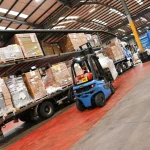
Design Meets Function: The Comprehensive Guide to Next-Generation Wooden Pallets in Kenya
Introduction
In the dynamic landscape of Kenyan logistics, the humble wooden pallet has undergone significant transformations. As businesses strive for efficiency and sustainability, next-generation wooden pallets have emerged, blending innovative design with enhanced functionality. This comprehensive guide delves into these advancements, highlighting their impact on the Kenyan market.
The Evolution of Wooden Pallets in Kenya
Wooden pallets have long been the backbone of storage and transportation in Kenya. Initially, they were simple platforms facilitating manual handling. Over time, as trade expanded and supply chains grew more complex, the demand for more robust and versatile pallets increased.
Traditional Wooden Pallets: Strengths and Limitations
Traditional wooden pallets offered durability and ease of repair. However, they also presented challenges:
- Weight: Heavier pallets increased transportation costs.
- Standardization: Variations in design led to compatibility issues with automated systems.
- Environmental Concerns: Use of non-sustainable wood sources raised ecological issues.
Emergence of Next-Generation Wooden Pallets
To address these challenges, next-generation wooden pallets have been developed, focusing on:
- Innovative Designs Enhancing Functionality
Modern pallets incorporate features like four-way entry points for forklifts, optimizing handling efficiency. Enhanced structural designs ensure better load distribution, reducing product damage during transit.
- Sustainable Materials and Environmental Impact
Manufacturers are now sourcing wood from certified sustainable forests, ensuring environmental responsibility. Additionally, treatments like heat-treating eliminate the need for chemical fumigation, aligning with global phytosanitary standards. citeturn0search1
- Compliance with International Shipping Standards
Adherence to standards such as ISPM 15 is crucial for export activities. Next-generation pallets undergo rigorous heat treatments and bear certification marks, facilitating smoother customs clearance and reducing the risk of shipment rejections. citeturn0search3
Customization Options for Diverse Industries
Recognizing the varied needs of industries like agriculture, manufacturing, and retail, pallet producers offer customization in:
- Dimensions: Tailored sizes to fit specific storage and transportation requirements.
- Load Capacities: Designs optimized for different weight-bearing needs.
- Branding: Incorporation of company logos and markings for easy identification.
Durability and Cost-Effectiveness
Investing in high-quality, durable pallets translates to long-term cost savings. Robust construction minimizes the need for frequent replacements, while repairable designs extend service life, offering better returns on investment.
Case Study: Deka Kraft’s Contribution to the Kenyan Market
Deka Kraft has emerged as a leading manufacturer of custom pallets in East Africa. Their state-of-the-art facility in Nairobi produces durable, export-compliant wooden pallets and specialized boxes that protect valuable produce during transit. By combining local craftsmanship with international standards, Deka Kraft supports Kenya’s growing agricultural export industry. citeturn0search0
Integration with Modern Supply Chain Systems
Next-generation pallets are designed for compatibility with automated warehouses and conveyor systems. Standardized dimensions and features like RFID tagging enhance tracking and inventory management, streamlining operations.
Challenges in Adoption and Implementation
Despite the benefits, transitioning to advanced pallets presents challenges:
- Initial Investment: Higher upfront costs may deter some businesses.
- Awareness: Limited knowledge about the advantages of modern pallets can hinder adoption.
- Infrastructure: Existing storage and handling systems may require modifications to accommodate new pallet designs.
Comparative Analysis: Wooden vs. Alternative Materials
While alternatives like plastic and metal pallets exist, wooden pallets offer:
- Cost Efficiency: Lower production costs compared to metal or plastic options.
- Repairability: Ease of repair extends service life, unlike plastic pallets which are often irreparable.
- Environmental Benefits: Biodegradability and use of renewable resources make wood a sustainable choice.
Future Trends in Pallet Design and Usage
The future of pallet technology in Kenya points towards:
- Smart Pallets: Integration of IoT devices for real-time tracking and condition monitoring.
- Eco-Friendly Innovations: Development of pallets using recycled materials and eco-friendly adhesives.
- Modular Designs: Adaptable pallets that can be reconfigured for various load types and sizes.
FAQs
- What are the benefits of heat-treated wooden pallets?
Heat treatment eliminates pests without chemicals, ensuring compliance with international shipping standards like ISPM 15.
- How do next-generation pallets contribute to sustainability?





Add a comment